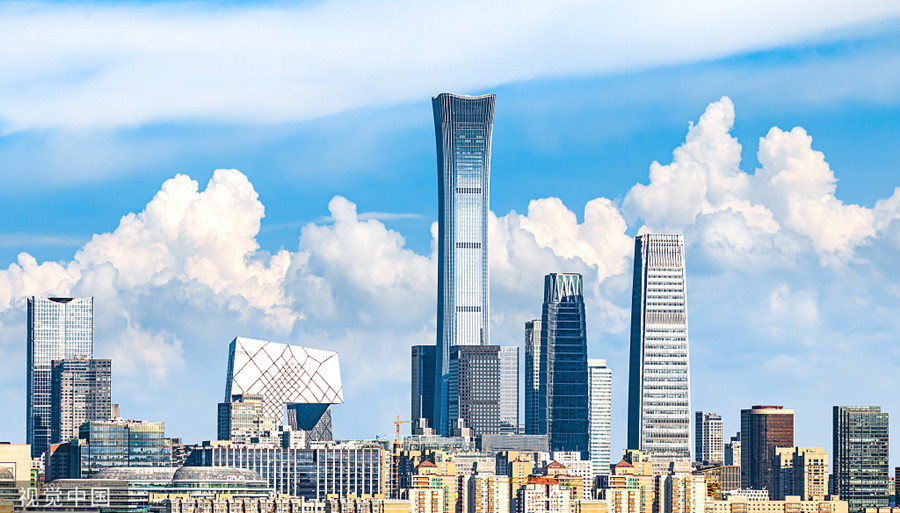Beijing makes great measures on air quality

The skyline of Beijing. [Photo/VCG]
Beijing's average concentration of PM2.5 has declined to 29 micrograms per cubic meter so far this year as the capital has been making great efforts in fighting air pollution and improving the natural environment in the past few decades, Zhao Lei, member of the Standing Committee and secretary general of Beijing Municipal Committee, said at a media conference on Tuesday afternoon.
The conference was held during the 20th National Congress of the Communist Party of China.
"The city's PM2.5 reached as low as 1 microgram per cubic meter on Sunday when the congress was opened, which was the best level ever during the same period since the data was collected," he said.
"We have the confidence and the determination to keep a clear sky in Beijing."
Beijing's air quality has attracted huge attention in past years. The annual average concentration of major airborne fine particulate matter, or PM2.5, declined to 33 micrograms per cubic meter in 2021, falling by 63.1 percent compared with the level in 2013. During that time, the city's forest coverage rate increased from 38.6 percent to 44.6 percent.
In the report delivered to the 20th National Congress of the Communist Party of China on Sunday, many major events such as 2022 Beijing Winter Olympics and Beijing-Tianjin-Hebei Integrated Development have been mentioned, Zhao said.
"We can see the 'Beijing service' in those events," he said. "We have witnessed this great era together."
Beijing is China's first megacity performing a different approach to sustainable development, having managed to pursue balanced growth matching its environmental and resource capacity over the past years.
The density of population in central urban districts in Beijing has declined by 9.5 percent in 2021 compared with 2013. The city has strictly controlled construction land in urban and rural areas by cutting 110 square kilometers of such land in the past years.
In April, 2015, the Beijing-Tianjin-Hebei integrated development plan was approved, making it clear that the region will be built into a world-class city cluster with the capital as the core.
Zhao said at the conference that since then, Beijing has transformed from previous achieving development growth by function clusters to redistributing resources and industries from the capital to nearby regions to achieve better growth.
Copyright © The National Committee of the Chinese People's Political Consultative Conference.
All rights reserved. Presented by China Daily.
京ICP备08100501号-1

